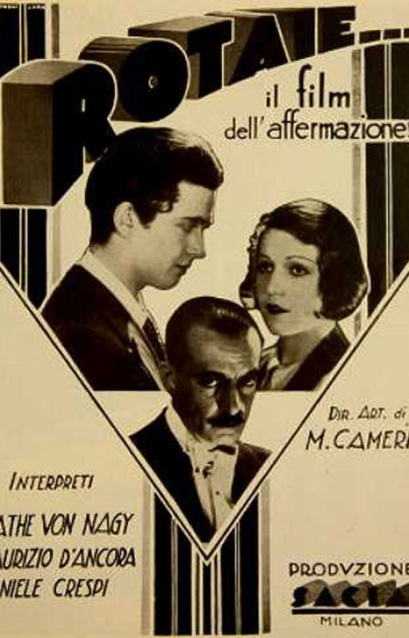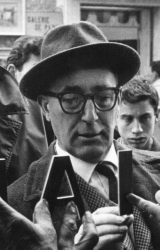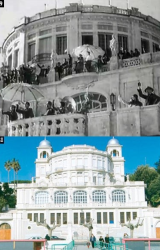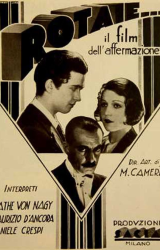Film Description
- Year: 1929
- Length: 74 Minutes
- Country: Italy
- Genre: Drama
- Director: Mario Camerini
- Producer: Giovanni Agnesi
- Screenwriter: Mario Camerini, Corrado D'Errico
- Cinematographer: Ubaldo Arata
- Cast: Käthe von Nagy, Maurizio D'Ancora, Daniele Crespi, Giacomo Moschini
Rotaie could be considered one of the last silent Italian films as well as one of the first talkies. The few lines of dialogue and sound, however, were added after the movie was done. It was conceived of as a narrative of images. Early Italian cinema and during its golden era was rooted in miming, choreographic representation, I would almost say a kind of pantomime. Camerini, prior to Rotaie, had directed La casa dei pulcini (The House of Pulcini), and Kiff Tebbi. In La casa dei pulcini we can already begin to see the characteristic tone that marks all of Camerini's films, except perhaps for Il grande appello (The Last Roll-Call). In Rotaie he did not try to dazzle with magnificent sets or exaggerate the acting. Everything was admirably tame. It is one of the simplest stories that have ever been shown on screen. A silent movie without captions but full of details, close-ups of objects to resolve a situation.
Details are very important in this movie. In Rotaie what is left unsaid is crucial: the stares, a character's uncertainty, the slow motion. We certainly cannot say that it is an animated movie. The director lingers on the description of a state of mind expressed through a reflection. The two youngsters, a boy and a girl, are miserable, poor and have no more hope, and this is very enticing for a director who wants to express through pictures the intimate lives of the characters, their vicissitudes, and end a sad moment of their lives happily. Camerini's young protagonists walk together into the night, they walk the cold humid streets of the city, get a sordid hotel room, the girl lays on the bed while the boy starts mixing a white powder solution into a glass. Perhaps they want to kill themselves. The window is half open: the wind blows, a train passes: the glass falls to the floor emptying its content. The youngsters did not realize that you could see a rail station and the sky just by looking out the window; rails, a train passing and leaving.



.jpg&dimension=168x143&x=&y=)
.jpg&dimension=168x143&x=&y=)
.jpg&dimension=168x143&x=&y=)
.jpg&dimension=168x143&x=&y=)
 Film Director-Mario Camerini
Film Director-Mario Camerini
 Film location - hotel in Sanremo
Film location - hotel in Sanremo
 content of VIDEO LESSON
content of VIDEO LESSON